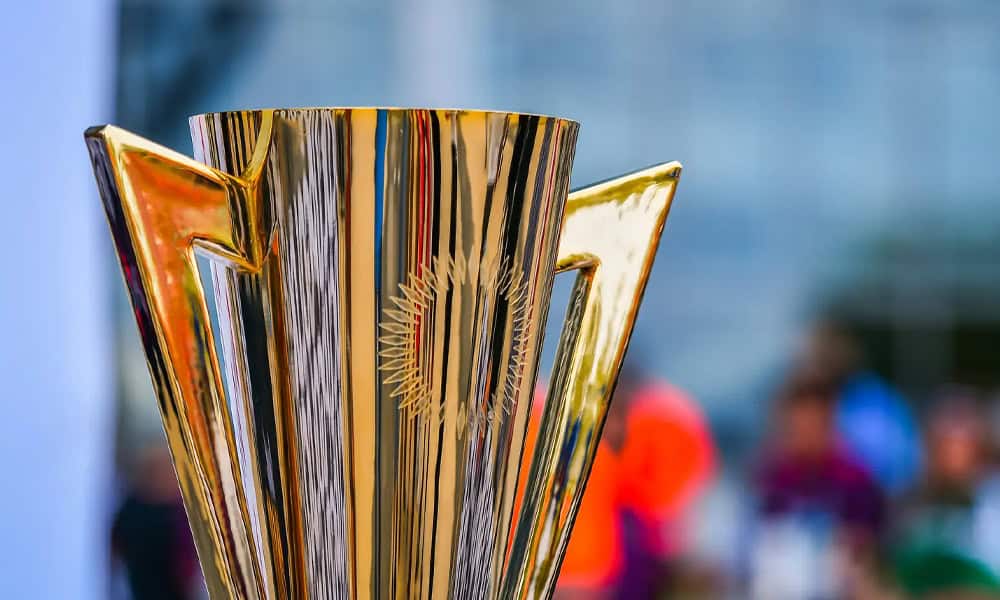While other CONCACAF teams have their sights set on the 2026 World Cup, Mexico, Costa Rica, and Canada are raising the stakes by targeting a Gold Cup title. The tournament will take place in the U.S. and Canada from June 14 to July 6. A year before the North American World Cup, high-profile teams from the host confederation—like the U.S. under coach Mauricio Pochettino and Panama under Thomas Christiansen—prefer to use the Gold Cup as a testing ground to fine-tune their squads for 2026.
But Mexico, Costa Rica, and Canada are already setting their goal: win the tournament, and nothing less. First held in 1991, CONCACAF’s top national team tournament will celebrate its 18th edition, primarily on the U.S. West Coast (with one match in Canada), while the FIFA Club World Cup is hosted simultaneously. The 17 previous titles have been dominated by three teams: Mexico (9), United States (7), and Canada (1).
Herrera Challenges Aguirre
Of the four groups, Group A is the most attractive on paper. Mexico and Costa Rica will face off in the third round in a match that could decide the group leader. “The numbers and history say it: we are title contenders. I won’t deny it or shy away from it,” said Javier Aguirre, now 10 months into his third stint as Mexico’s head coach. Mexico is the defending champion.
With just five months in charge of Costa Rica, Mexican coach Miguel “El Piojo” Herrera is aiming to make history and add a Gold Cup title to Costa Rica’s record. Herrera already won the tournament in 2015 with Mexico. He now hopes to face his former team to determine “who advances to the quarterfinals as group leader, and hopefully, we could meet again in the final.”
“Costa Rica came here to win the Gold Cup,” said El Piojo. Group A also includes Suriname, making its second appearance, and debutant Dominican Republic.
Marsch Wants the Gold
American coach Jesse Marsch hopes to lead Canada to win Group B and “challenge the traditional CONCACAF powers.” “We are an emerging national team, we’ve earned respect, and we won’t be satisfied unless we win the Gold Cup,” he acknowledged.
Marsch, Canada’s head coach since May 2024, will miss the first two matches due to a red card from the last CONCACAF Nations League. Group B is rounded out by Honduras (1991 runner-up), El Salvador (six-time quarterfinalist), and Curaçao (making their third appearance).
Christiansen Has a Different Priority
Among the 16 teams in this Gold Cup, Panama has the most consistent process, led by Danish coach Thomas Christiansen since July 2020. In nearly five years, Panama has achieved two runner-up finishes—in the 2023 Gold Cup and the 2024–2025 CONCACAF Nations League.
“The evolution of Panamanian soccer, and specifically ours, has been positive,” said Christiansen, while tempering expectations for a title. “Our main goal is qualifying for the World Cup. But if we can also have a good run in the Gold Cup, all the better. Winning it would be great—an achievement,” he said.
Panama is in Group C with Jamaica (runner-up in 2015 and 2017), Guatemala (semifinalist in 1996), and Guadeloupe (semifinalist in 2007).
Pochettino Lowers Expectations
Host nation United States enters the tournament reeling from two painful defeats in warm-up matches: 2–1 against Turkey and 4–0 against Switzerland. These stumbles have raised questions around Argentine coach Mauricio Pochettino, now nine months into a heavily criticized tenure with Team USA.
“Maybe we can win the Gold Cup and then have a good World Cup,” said Pochettino after the loss to Switzerland. He called the Gold Cup “a great opportunity to evaluate players” for 2026, as several key players are unavailable due to the FIFA Club World Cup—like Weston McKennie and Timothy Weah (Juventus), and Giovanni Reyna (Borussia Dortmund).
“As hosts, the pressure is on and expectations are high,” said Pochettino, tempering hopes for victory: “We need to win, but even if we lose, we must take away a lot of positives.” In Group D, the U.S. will face Haiti (third place in 2019), Trinidad and Tobago (third place in 2000), and Saudi Arabia, invited to participate in the 2025 and 2027 editions.






